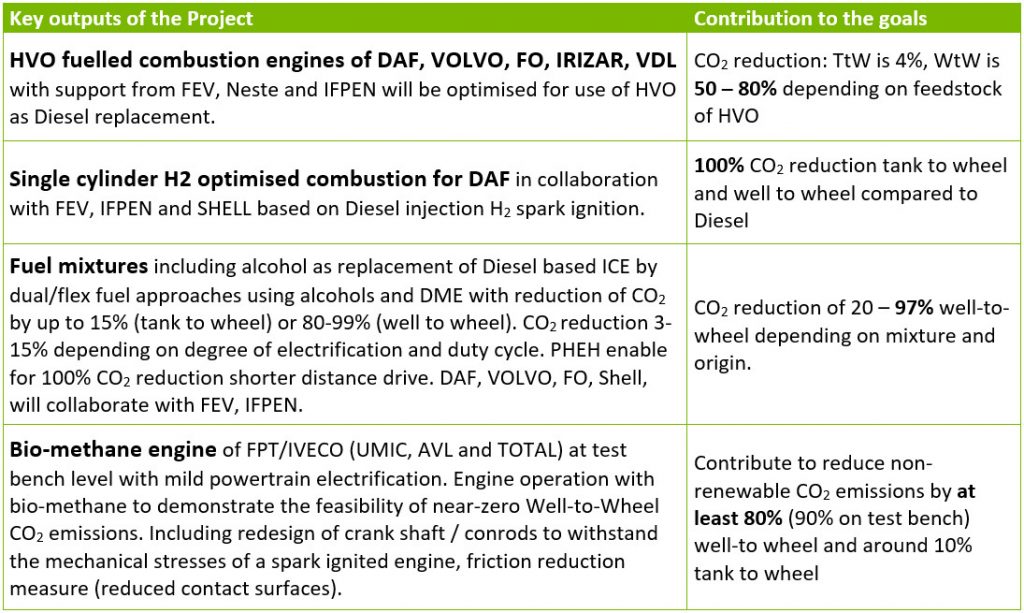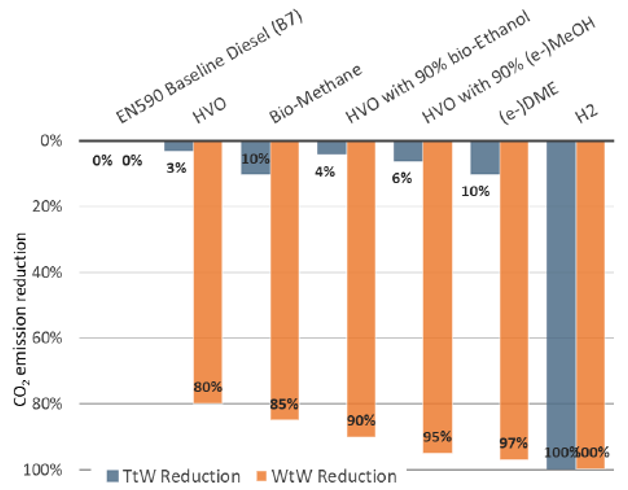Lead partner: IFP Energies Nouvelles
The innovations in this cluster will focus on and enable the use of alternative fuels, such as HVO, bio-methane, H2 as well as others in various mixes. Hybridisation and the positive CO2 impact of electrification and engine efficiency will of course also contribute to show the maximum CO2 emission reduction.
The key target of this task is to elucidate the potential of alternative fuels for future sustainable and efficient transport in the heavy duty long haul sector.
Bio-based components such as ethanol and HVO, and in the long term probably also e-fuels (electricity-based fuels) such as hydrogen, methanol and Fischer-Tropsch products and alcohols derived from hydroformulation, will play a major role in future long distance transport.
Within this task, different routes will be studied:
A. Future alternative liquid fuels for an optimised CI combustion (within EN590 and EN15940);
B. Direct injection Hydrogen Spark Ignited Combustion;
C. Dual Fuel (liq/liq) Combustion:
three options of combustion of Methanol (or bio-ethanol) will be considered in the beginning of the project, and the most interesting will then be evaluated:
- Onboard blending by using two tanks and running a variable mixture of EN590/15940 and alcohol;
- Dual fuel mode with main fuel alcohol and EN590/15940 or others as ignition support (e.g. micro pilot injection);
- Glow supported ignition of alcohol fuel.
DME results will be integrated into the complete picture as well.
Alternative fuels with low-carbon footprint CO2 reduction potential:
All above activities will be developed within task ‘Thermal insulation and future fuel pathways‘;
Expected results will be bundled in the following deliverable reports:
- Fuel matrix for future HD engines is a report on the most promising fuels for future HD applications [M6];
the detailed fuel matrix design process will be based on an assessment evaluating all relevant parameters – such as Well-to-Tank CO2 footprint, long-term fuel availability, infrastructure, and production costs- for future renewable fuels - Assessment of the Dual Fuel combustion is a report on the testing results of single-cylinder investigations with different liquid/liquid dual fuel approaches [M19]
- Assessment of future alternative liquid fuels for an optimised CI combustion [M25]
- Assessment of thermal insulation [M25]
- Assessment of direct injection hydrogen spark ignited combustion [M31]
Involved partners

